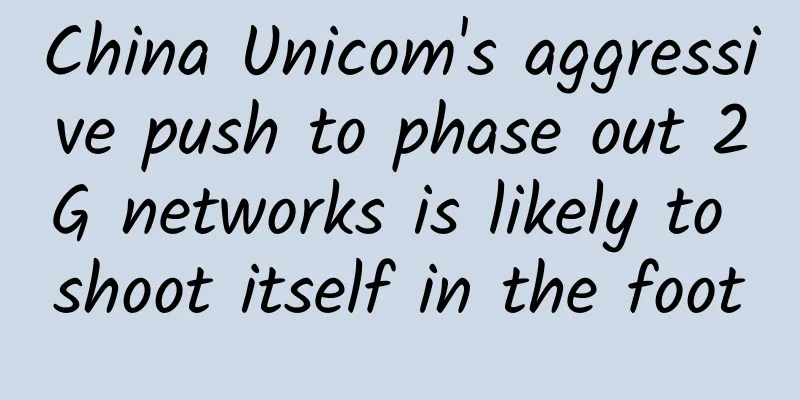It is urgent for operators to improve network operation and maintenance

|
Communication networks are the underlying infrastructure of digital devices and are an indispensable information resource for people's production and life. We have seen that whether it is a natural disaster, such as the flood in Beijing, Tianjin and Hebei, or a network attack or system failure, once a communication network interruption occurs, it is an "unbearable burden". Since the beginning of this year, there was the "Guangdong Telecom Internet outage" incident, followed by the "Hebei Telecom double deduction" incident, and there have been more than two or three incidents, involving users in multiple provinces and cities from multiple operators, which has aroused widespread concern in the society. The basic attribute of telecommunications operators is still "operation". Even today when digital transformation has become a major trend, operators still need to "uphold the truth and innovate" and make network operation and maintenance their top priority, rather than "losing sight of the forest for the trees". In the 5G era, the existence and service mode of the core network have undergone tremendous changes. The 5G core network no longer exists in the form of dedicated hardware as before, but has moved towards full cloudification. The core network has achieved "software and hardware integration" and cloudification, and the technical requirements for operation and maintenance personnel are getting higher and higher. However, at present, some base station and equipment work (including the maintenance of dynamic and environmental systems) is basically handled by third parties. In the long run, operators do not have their own strong technical team and lack long-term and continuous technical accumulation. The maintenance experience is in the hands of others, which poses a great risk. With the continuous improvement of communication infrastructure and increasingly fierce market competition, important energy and resources have been invested in increasing new capacity, retaining existing capacity and increasing traffic. This has led to a certain degree of relaxation in network construction and maintenance, and has objectively made network failures more likely to occur. In the 5G era, operators need to continue their efforts in building 5G networks, providing 5G services, maintaining 5G networks, etc., and continue to increase investment in 5G networks to improve network speed and capacity, optimize network structure, and improve network efficiency, including optimizing network topology, increasing network bandwidth and capacity, and using more efficient communication technologies. In addition, operators need to strengthen network security management and monitoring, use stronger encryption technology, and implement security policies and measures to prevent hacker attacks and data leaks; they also need to adopt intelligent technologies (such as artificial intelligence, big data analysis, etc.) to improve network operation and maintenance efficiency, detect and identify problems more quickly, and better monitor network conditions. In addition to strengthening the above routine network operation and maintenance work, operators also need to strengthen emergency communication capabilities to provide important guarantees for rapid response and emergency communications when network failures occur. To adapt to the requirements of the new era, operators should comprehensively and systematically plan and build emergency communication networks to improve emergency response speed and communication reliability, including the construction of dedicated communication networks, satellite communication systems, microwave communication systems, etc., as well as more emergency equipment such as long-flight drones. At the same time, operators should regularly maintain and inspect communication equipment, and strengthen equipment siting, construction quality, water and electricity reserves, etc., to ensure the stability and reliability of equipment operation in emergency situations. Operators also need to strengthen the security of communication networks. Operators need to adopt stronger encryption technology and implement more stringent security policies and measures to respond to hacker attacks and virus attacks at all times and be able to quickly restore the normal operation of the network when the network may be damaged. Improving network operation and maintenance capabilities ultimately depends on people. Operators should develop comprehensive emergency response plans, recruit senior technical personnel, and conduct training and drills so that they can respond in the shortest possible time once a problem occurs. In the 5G era, networks are becoming more and more complex and important. Once a failure or damage occurs, the social impact and losses are enormous, becoming an "unbearable burden" for the digital society. This has brought new pressures to operators, but also brought opportunities for operators to innovate and develop. Only by improving network operation and maintenance capabilities, enhancing security levels, and improving emergency response mechanisms, and thus providing the whole society with high-speed, secure, and stable communication infrastructure, can operators create greater value in the new era. |
<<: 5G technology: enabling the Internet of Things and ultra-high-speed connectivity
>>: Are wireless networks more energy efficient than wired LANs?
Recommend
The computing power network has its own calculations
In recent years, the wave of digitalization has c...
Huawei invites you to use your imagination to guess
[51CTO.com original article] Are you tired of wor...
Tsinghua Unigroup's H3C wins China Mobile's 2020-2022 IPS centralized procurement project with the largest share
Recently, China Mobile announced the bidding resu...
China Mobile's July data shows sharp decline in users is still accelerating
Recently, China Mobile released its operating dat...
Review of China Unicom in 2020: Being “down-to-earth” in the “hyper-realistic” development of 5G, and moving forward with firm “mixed reform”
As a technology that can rewrite the rules of the...
Getting Started with Software Defined Storage (SDS)
With the Internet, the Internet of Things, and bi...
Practical tips: Teach you step by step to solve the problem of WiFi interference
Suppose there is a large classroom that can accom...
China Academy of Information and Communications Technology interprets the "Notice on Promoting the Accelerated Development of 5G"
In order to thoroughly implement the spirit of th...
Security teams’ need for flow data drives NetSecOps collaboration
You’ve probably heard about the fact that network...
IDC: Global Enterprise WLAN Market Shows Moderate Decline in First Quarter of 2020
According to the results of IDC's global quar...
A simple introduction to the consensus algorithm Raft
[[417323]] This article is reprinted from the WeC...
Interviewer, I implemented a Chrome Devtools
[[426371]] Web pages will load resources, run JS,...
Extend PoE Distance: Unlock the Maximum Range of Power over Ethernet
Power over Ethernet (PoE) has revolutionized the ...
Ren Zhengfei’s response to the “export ban” is here: every one of them is very powerful!
Recently, Mr. Ren Zhengfei, founder and president...
Leading products and fast delivery: H3C helps Jomtel Mexico cope with digital challenges
Currently, in the digital trend sweeping the worl...









